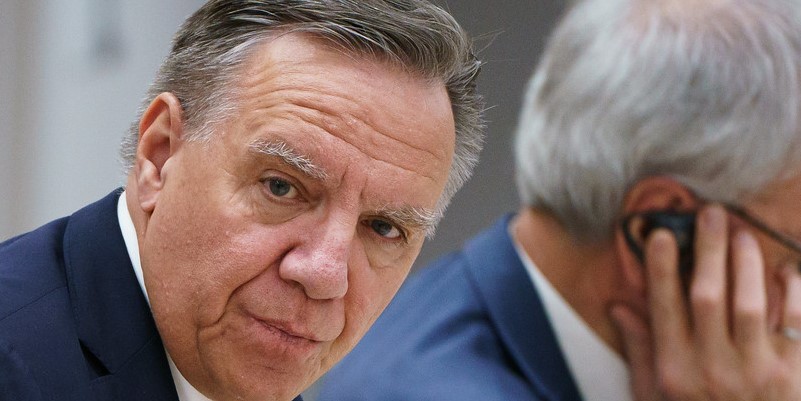Legault government recorded two highest years of spending in Quebec since 1965

Premier François Legault has recorded the two highest years of government spending (on a per-person basis, after adjusting for inflation) in Quebec since 1965. And absent a change in direction, the Legault government will likely record another deficit when it tables its next budget in March.
Specifically, according to a new study published by the Fraser Institute, from 1965 to 2021 (the latest year of comparable data), the two highest years of per-person program spending took place in 2021 ($15,562) and 2020 ($15,260), both under the Legault government. Of course, the increased spending during those two years was partly in response to the pandemic. But even excluding COVID-related spending, 2020 and 2021 remain the two highest spending years (again, on a per-person basis) in Quebec since 1965—and likely ever, since per-person spending that year, as the Quiet Revolution hit its peak, was only $$2,942.
And according to the government’s latest fiscal update, it plans to continue its high-spending ways, projecting deficits of $4.0 billion in 2023/24, $3.0 billion in 2024/25, $2.0 billion in 2025/26 and slightly less than $1.0 billion in 2026/27. While the government has promised to balance the budget by 2027/28, governments notoriously fail to meet their fiscal commitments over a longer time frame while governments that prioritize balanced budgets within two years tend to have success. In fact, Finance Minister Eric Girard has already warned that the deficit will be larger than originally forecast and it’s expected the balanced budget date will be pushed further into the future.
Of course, deficits fuel debt accumulation, which Quebecers are ultimately responsible for financing through their taxes. Based on projections, with a net debt (total debt minus financial assets) of $210.0 billion in 2022/23, debt interest costs will hit $9.9 billion, which is equal to $1,127 per person. In fact, debt interest represents the government’s third-largest budget category after health care and education. And due to budget deficits and higher interest rates, debt interest costs are expected to grow to $11.1 billion by 2027/28 or almost 10 per cent of total provincial government revenue.
It’s also worth remembering that interest payments are not discretionary, unlike many other government expenditures. They must be paid. And that’s money no longer available for health care, education or even tax relief.
So, what’s the solution?
Deficits are simply the difference between government spending and government revenue in a given year, which means the government must either find more revenue (i.e. increase taxes) or reduce spending. Given that higher taxes can hurt economic growth by discouraging entrepreneurship, work, investment and savings, the logical choice is to rein in historically high spending. This is not just an abstract theory—empirical research conducted over many years in many countries including Canada shows that spending cuts have much less damaging effects on the economy than tax increases as a way to balance a government’s budget.
The Legault government has presided over the two highest years of provincial government spending (on a per-person basis, after adjusting for inflation) in more than 50 years. To protect Quebecers from the costs of deficits and corresponding debt accumulation, the government should rein in spending in its upcoming budget. Otherwise, Quebecers will pay the price.


